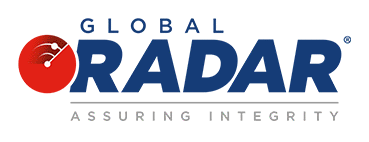A bipartisan investigation published by the United States Senate last week revealed a troubling finding with the potential to rock the realm of anti-money laundering (AML) at the international level. The report titled “The Art Industry and U.S. Policies That Undermine Sanctions” details how Russian oligarchs have been successful in circumventing U.S. sanctions as well as detection by federal authorities by laundering money through a rather creative medium: the art trade (no pun intended). Headed by American Senators Tom Carper (D-DE) and Rob Portman (R-OH), the Senate’s Permanent Subcommittee on Investigations two-year probe into illicit activities involving the art industry discovered that a general lack of regulation in this sector has allowed Russia’s rich and powerful to move tens of millions of dollars into the U.S. financial system with little resistance. The manner in which this accomplished was exemplified in a case study featured in the report.
Within the 150-page report, American investigators chose to highlight the this loophole by explaining how a wealthy Russian family (Arkady and Boris Rotenberg, and their son, Igor) with ties to both the construction and energy spheres were able to utilize shell companies and intermediaries and capitalize on the general lack of security seen across the aforementioned art industry to conceal their true identities and propel their illicit activities. Politico notes that the Rotenberg’s were already on the radar of U.S. counter-intelligence forces years ago, as they “were sanctioned and had their U.S. assets frozen in March 2014 as part of the Obama administration’s decision to punish Russian President Vladimir Putin and his close associates over Russia’s annexation of Crimea.”1 Compounding matters, documents released by law firm Mossack Fonseca in 2016 as part of the notorious “Panama Papers” fallout directly tied the Rotenbergs to a total of nine shell companies incorporated in the British Virgin Islands involved in high-value art purchases. Despite the sanctions and this noteworthy history however, the Subcommittee found that the clandestine nature of the art industry allowed intermediaries (in this case, Moscow-based art advisor Gregory Baltser acting on behalf of the family) to purchase over $18 million in priceless works of art located within U.S. borders while utilizing some of the very shell corporations identified in the Panama Papers releases. Even more troubling, the report also notes that these shell companies tied directly to the Rotenberg family engaged in a total of $91 million in post-sanctions transactions involving a multitude of American industrial sectors.5 While the auction houses involved with Balster’s art purchases have gone on record stating that they will no longer conduct any business with him as a result of the investigation’s findings, the damage has been done as the cash in question has long been cleared.
While the Rotenberg’s were the sole group that the United States government could fully incriminate in their inquiry, investigators believe these findings could represent just the tip of the iceberg for what could very well be a global phenomenon. While some of the more prominent U.S. auction houses (Sotheby’s for example) have their own AML controls in place, they have chosen to implement these strictly voluntarily. The fact remains that private art dealers and the majority of the art industry overall is not subjected to compliance with the U.S. Bank Secrecy Act (BSA) nor other AML and counter-terrorism financing requirements, making it scary to wonder to what extent criminals, politically-exposed persons (PEPs) and other individuals of interest have been able to clean their dirty funds in the Americas to date. Also making matters worse for U.S. authorities is the fact that those engaging in deals for art (both buyers and sellers) often do business anonymously and leave no paper trail, making it difficult to track down those involved if need be. Furthermore, with the U.S. accounting for 44% of the total volume of art sales across the global market as of 2019 (representing approximately $28.3 billion worth of transactions), it appears the States have evolved into the prime target for such financial misconduct. In a resounding take on the current state of affairs, Senator Carper stated that it is “alarming and completely unacceptable that common sense regulations designed to prevent money laundering and the financing of terrorism do not apply if someone is purchasing a multi-million dollar piece of art.”5
The European Union has moved to address illicit activities of this variety in recent years, putting forth legislation to shore up these issues and force art houses to be compliant with federal anti-money laundering regulations – effectively closing this loophole for the time being. Analysts now expect the United States to follow suit. The Senate’s report made several specific recommendations to strengthen regulations with regard to auction houses and their high-priced art sales. The report also suggests that the Treasury Department should be more proactive in regards to the identification of beneficial ownership when it comes to the art trade.
The Senate’s report in its entirety can be found here.
Weekly Roundup
Ex-King of Spain Departs Country Amid Corruption Claims
Former King of Spain Juan Carlos I has reportedly fled the country to live abroad following the emergence of allegations of potential corruption that occurred during his lengthy tenure. The Spanish royal family, now headed by Juan Carlos’ son King Felipe VI, released a letter written by the former ruler where he wrote of his decision to move due to the “public repercussions of certain episodes of my past private life.”4 Juan Carlos, who held his throne from 1975 until his abdication in 2014, is currently under investigation by authorities in both Spain and Switzerland involving his alleged receipt of upwards of several tens of millions of euros in illicit kickbacks from former Saudia Arabian King Abdullah bin Abdulaziz Al Saud in 2008 to facilitate a €6.7bn ($7.86bn USD) contract involving the construction of a high-speed rail line in Saudia Arabia. King Felipe ultimately renounced his father’s inheritance once rumors emerged that he was poised to receive millions of euros himself from an offshore account created by his father that was tied to the Western Asian state, while later stripping the ex-king of his lucrative annual stipend.
It is believed that Juan Carlos kept a significant portion of undeclared funds in Switzerland, a notorious tax haven, under the guise of Panama-based entity “Lucum Foundation.” – which is believed to have held roughly €65 million in funds “donated” by the late Saudi Arabian king. Authorities in Switzerland are currently investigating a reported €6.7 million transfer sent from private Swiss bank Mirabaud to the account of Dante Canónica, a lawyer and administrator of Lucum Foundation (whose first beneficiary was Juan Carlos I and second was King Felipe VI) located in yet another international tax haven, the Bahamas.3 A separate investigation also led by Swiss prosecutors has allegedly tied Juan Carlos to Fondation Zagatka, another fund alleged to be holding ill-gotten Saudi Arabian cash. The former leader’s exact whereabouts remain unknown at this time, though several international publications have indicated that he may have headed to the Dominican Republic for the time being.
Former Guatemalan Economy Minister Charged With Money Laundering
On August 5th, American prosecutors formally charged ex-Guatemalan Economy Minister Asisclo Valladares with conspiring to commit money laundering of approximately $10 million in ill-gotten funds associated with the drug trade. Valladares, who remains at large, is also wanted on corruption charges in his native Guatemala after it was discovered that he used at least a portion of the proceeds from the money-laundering ploy to bribe politicians in the Central American country. An FBI criminal complaint has labeled Valladares an enabler of the drug trade between Colombia, Central America and Mexico. As such, an Interpol Red Notice (a request to law enforcement worldwide to locate and provisionally arrest a person pending extradition, surrender, or similar legal action) is ongoing.
The Miami Herald, citing the criminal complaint, notes that between 2014 and 2018, Valladares reportedly “collaborated with a major drug trafficker, a corrupt politician and crooked banker in Guatemala in creating a trail of untraceable cash,’”6 The article adds that both the trafficker, “who is in prison in the United States, and the bank employee, who has pleaded guilty, are cooperating with authorities” in the case against the embattled minister. U.S. prosecutors were ultimately able to bring a case against the foreign national because a portion of the “tainted money flowed through two Miami companies’ accounts to Valladares in Guatemala.”6
DOJ Indicts Execs of Prominent Chinese Gaming Firm
Last week, three executives from Hong Kong-based investment holdings and gaming operator Imperial Pacific International (IPI) were indicted on criminal charges that included the reported unlawful harboring and employment of illegal aliens, international money laundering, and Racketeer Influenced and Corrupt Organizations Act (RICO) conspiracy. The 71-count federal indictment alleges Liwen “Peter” Wu, Jianmin Xu, and Yan Shi committed criminal acts while holding premier positions with IPI and contractor MCC International Saipan, respectively. The defendants have been accused of “utilizing criminal labor practices during ongoing construction of the Grand Mariana Casino Hotel and Resort on the island of Saipan”, while also allegedly transferring “over $24 million into the United States to promote their illegal activity.”2 With all three defendants residing outside of the U.S., they are to be arrested and arraigned upon their extradition to America.
The troubled casino operator faced permanent closure earlier this year secondary to a general lack of finances following a court judgment which ordered the firm to pay $5.6mn USD to a former contractor, Pacific Rim Land Development LLC, for works completed in late-2018. The ruling is currently under appeal.
Citations
- Bertrand, Natasha. “Congressional Probe: Russian Oligarchs Using Art to Evade Sanctions.”POLITICO, POLITICO, 29 July 2020.
- “Imperial Pacific International and MCC International Saipan Executives Indicted on Federal Charges.” The United States Department of Justice, 4 Aug. 2020.
- Irujo, José María. “Switzerland Investigates €3.5m Transfer from Account Held by Spain’s Emeritus King to The Bahamas.”EL PAÍS, 13 July 2020.
- Ng, Kate, and Chris Baynes. “Spain’s Former King Juan Carlos to Leave Country amid Financial Scandal.”The Independent, Independent Digital News and Media, 4 Aug. 2020.
- “Portman, Carper: Bipartisan Report Reveals How Russian Oligarchs Use Secretive Art Industry to Evade U.S. Sanctions.” Majority Media | Homeland Security & Governmental Affairs Committee, 29 July 2020.
- Weaver, Jay. “Ex-Guatemalan Minister Charged in Miami with Laundering Millions for Drug Traffickers.” Miami Herald, Miami Herald, 5 Aug. 2020.

